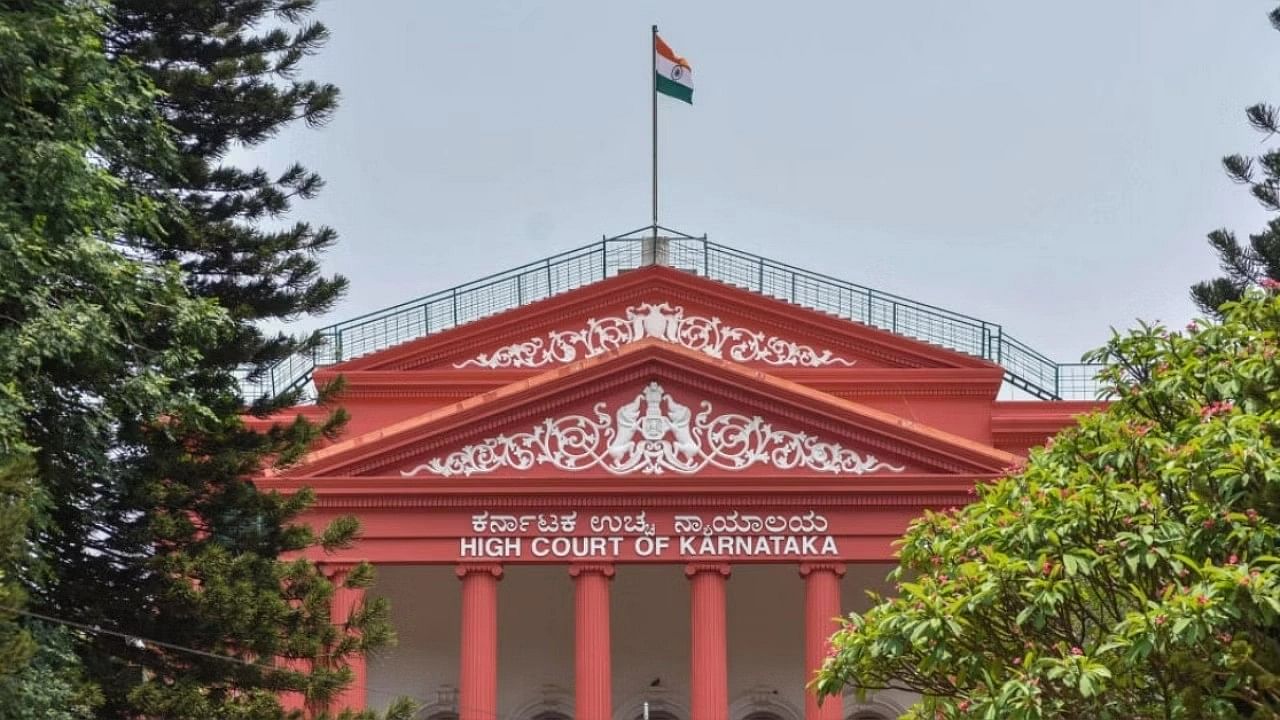
The Karnataka High Court.
Credit: DH File Photo
Bengaluru: The Karnataka High Court has ruled that sub-registrars cannot refuse to register a document based on pending dues owed by borrowers to the Income Tax Department.
The court issued this ruling while allowing a petition filed by a purchaser of land auctioned by Canara Bank.
Petitioner Bharath Gowda successfully bid, in a March 2022 auction conducted by Canara Bank, for a 6,000 sqft mortgaged property in Hombegowdanagar, Wilson Garden, Bengaluru.
When he approached the JP Nagar sub-registrar office to register the sale certificate issued by Canara Bank, he was informed orally that the document could not be registered due to his pending IT dues. After receiving no response to his representation submitted on February 12, 2024, he moved the high court.
The petitioner argued that the auction proceedings were conducted under the Securitisation and Reconstruction of Financial Assets and Enforcement of Security Interest Act, 2002 (SARFAESI Act), which takes precedence over any other law. He contended that the pending dues with the Income Tax Department were not a valid reason to deny the registration of the sale certificate.
The government countered the argument, saying Income Tax dues are statutory obligations and must be cleared by the borrowers to ensure the property is free from encumbrances. It submitted that the sub-registrar will not register the property if it is not encumbrance-free.
The court reviewed the provisions of the Registration Act and Rules, noting that the sub-registrar does not have the jurisdiction to refuse registration of a document unless there is a violation under Rule 171 of the Rules.
“The sub-registrar can act only within the four corners of the Registration Act and the Registration Rules framed by the state. If none of the circumstances under Rule 171 of the Rules are found, the sub-registrar has no jurisdiction to refuse registration of a document; the document in the case at hand is the sale certificate,” Justice M Nagaprasanna said, asking the state government to issue necessary circular in terms of Rule 171 of the Rules and the law laid down by the Supreme Court.
“If the sub-registrar would not register a document, if it is found to be in tune with the law, the delay in registration would be attributable only to those sub-registrars, who will be saddled with exemplary costs when such cases are brought before this court seeking a direction for registration of a document,” the court said.